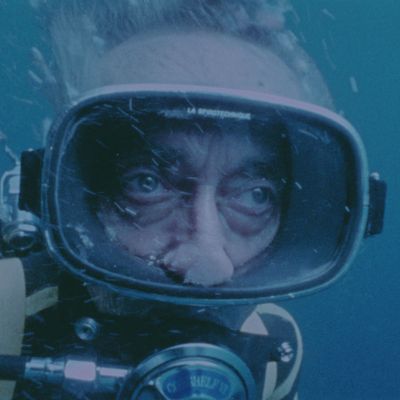Save this article to read it later.
Find this story in your accountsSaved for Latersection.
Everything I am goes back to the sea.

And not just on a species level, either.
The sea was all I cared about.
I talked about becoming a marine biologist when other kids talked about becoming firemen or astronauts.
Almost all of the books I wanted to read were sea books.
I made my grandfather read the entirety of a then-new unabridged Turkish translation ofMoby-Dickto me when I was six.
(I still cant believe the poor man actually did it; the damn thing was huge.)
Even my cinephilia probably comes from the sea.
The thing is, I wasnt some weird anomaly.
But we were also drawn to the slender, curious figure of Cousteau himself.
(In 1954, Cousteau helped locate the undersea oil sources that led to much of Abu Dhabis wealth.
We found their oil, as he bluntly puts it in an interview included here.)
Its rare, even today, to see real dead bodies on camera.
Humanitys journey to the deep was not a given or even well advised.
Garbus herself has a great eye, so she knows what footage to use and how.
These may seem like no-brainers now, but they were not when Cousteau first got started.
He found a cinematic language to express these things that most people had never seen.
No wonder entire generations were captivated by this stuff.
It wasnt just the subject matter; it was the filmmaking itself.
Garbus conveys that beautifully while briskly threading Cousteaus biography and emotional journey throughout.
Becoming Cousteauis one of several excellent documentaries about the sea to come out this year.
The movies are lovely, but collectively they strike an unbearably despairing note.
As Garbuss film makes clear, Cousteau was already aware by the late 1960s that our oceans were dying.